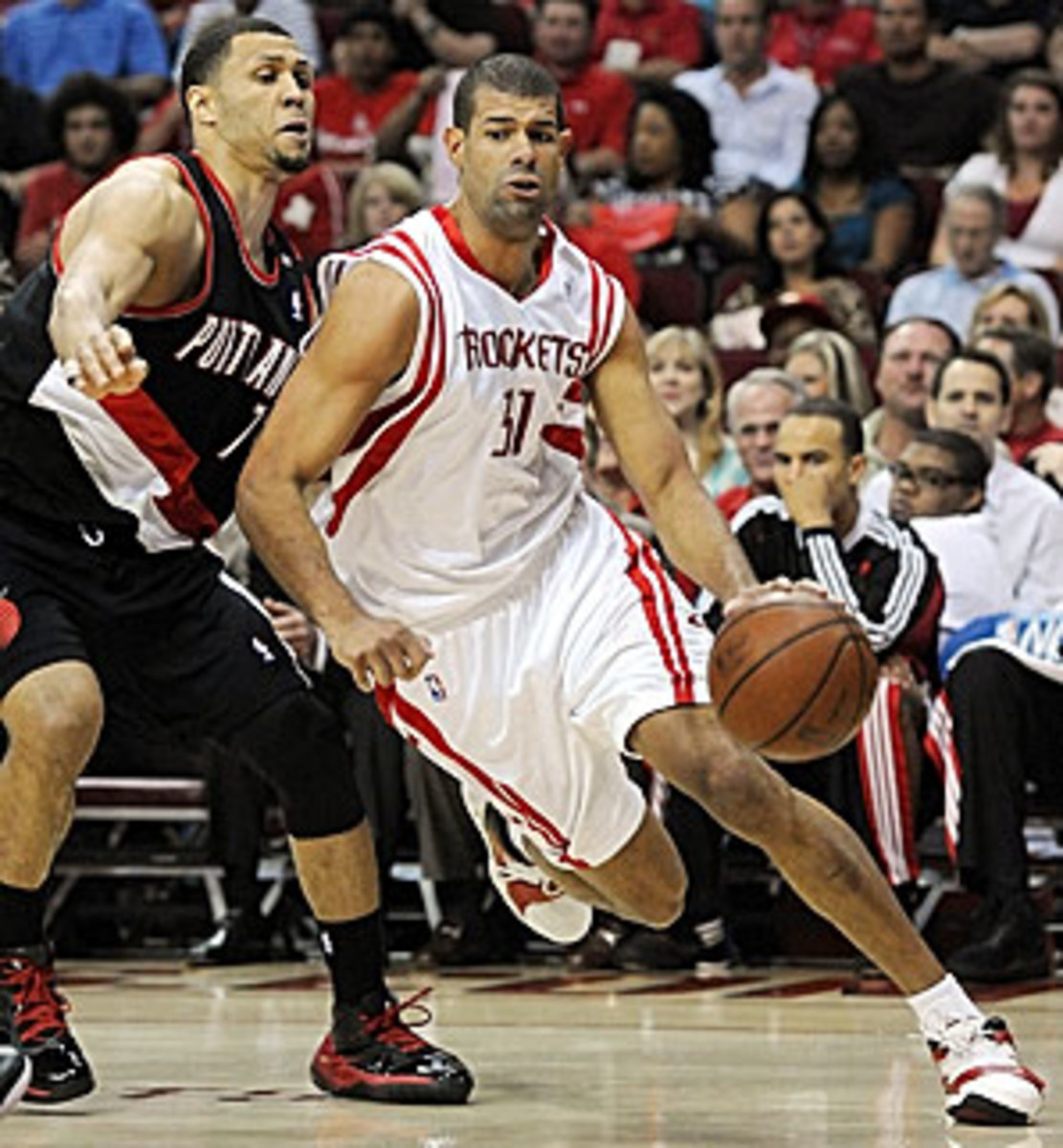Better D next step in Roy's growth
Brandon Roy didn't raise an eyebrow when Nate McMillan called during the summer and issued his challenge.
The Trail Blazers' All-Star guard and his coach had been talking regularly in the offseason, tossing back and forth ideas for what Roy should focus on to improve his game. His new maximum-level contract -- estimated at more than $80 million -- was in hand. He was the Blazers' unquestioned leader and their offensive centerpiece.
What should be the next step? The pair bantered about the topic until McMillan called one day, assured he had the answer.
Make the All-Defensive team.
"You should make a goal to defend on a high level every night," Roy said McMillan told him. "Not only would it take us as a team to the next level, but it would take me to that next level as a player that I want to be at."
The thought clicked immediately in Roy's head. He knew McMillan was right, even though the Blazers' rapid rise to success had depended largely on Roy's offensive achievements.
Portland certainly wouldn't have won 54 games last season without Roy burying a 30-foot game-winner at the buzzer against Houston early in the year, or scoring 52 points in a tight victory over Phoenix. His short career is already stuffed with those moments, when the developing Blazers -- still one of the league's youngest teams -- needed to ride their leader's hot hand. It was necessary at the time, Roy said. But things are changing.
LaMarcus Aldridge is blossoming into an All-Star-caliber forward. Rudy Fernandez has added flair to the perimeter. Greg Oden brings a potentially imposing presence to the frontcourt, and a handful of athletic small forwards add options on the wing. There should be enough talent throughout the rotation to reduce the pressure on Roy to carry the Blazers every night. Enough, he believes, to afford him more focus on the defensive end.
"This is just the next natural progression in my game," Roy said. "A lot of people may say I got my contract because of scoring. But I think I got my contract because I am all-around, I'm versatile, and I'm always looking for ways to improve my game."
McMillan doesn't view his challenge to Roy as unique, though. In fact, Roy is following the same process that McMillan has seen numerous other young stars take. Like Roy, players commonly earn their spots in the NBA because of their offense. They establish themselves on that end and use it to secure their big payday. Then when they get truly serious about winning, McMillan said, they start focusing on defense.
It's a pattern that can be seen even in the sport's greatest players. Kobe Bryant took until his fourth season to make his first of nine All-Defensive teams -- the same year he won his first NBA title. Michael Jordan also took until his fourth year to get the honor, and it just happened to be the same year that his Bulls posted a winning record and advanced beyond the opening round of the playoffs for the first time since his arrival.
Now Roy has reached that same point.
"All the good players who win big -- All-Stars who are not only All-Stars, but who win at a high level -- they all do that," McMillan said. "We know that this was what he needed to do. He can do it. And he knows he can do it."
Roy has already been a defensive difference maker in short bursts. Just look to Portland's comeback victory at Atlanta on Jan. 27, 2008, for a prime example: Roy forced two turnovers and blocked a shot in the final 2:47 while scoring eight unanswered points to rally the Blazers to a one-point win. In stretches like that, Roy said he would grade himself as an "A" defender.
But he admits that grade would slide as low as a C-plus for his performances in complete games. Though far from a liability, he also couldn't commit the energy required to excel on defense when the trade-off meant conserving himself with reduced playing time or fewer shot attempts. Out of necessity, Roy said he had to save himself for where the Blazers truly needed him.
Roy, however, has always been about doing what was necessary. He has long maintained that scoring isn't a personal need; it was what his team required. And Portland's playoff loss to Houston last spring showed it isn't a fix-all. The Blazers got out-toughed by a physical defense in that series, even though Roy's scoring average increased four points in the postseason. It was one of the moments that made it clear: Offense isn't enough.
So Roy nodded his clear understanding when McMillan issued his challenge. He'd been a leader for years, but never on the defensive end. And he'd made clutch plays countless times, though they came through big shots and key passes far more often than clutch steals or blanketing coverage. As Roy looks to take the next step, he is convinced that the essential adjustment will be to change those priorities.
"I want them to instill it in me to always think defense," Roy said. "My offense will come, but that's not my focus anymore."






